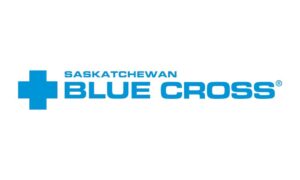Berkshire Hathaway gets $1.42bn Q4 premium, $14bn float with Alleghany

Warren Buffett’s conglomerate and re/insurance company Berkshire Hathaway delivered an underwriting loss for 2022 in its results this weekend, but the benefits of the strategy of accumulating “free” investment float are again evident and the acquisition of Alleghany Corporation has helped to bulk this out even further.
Berkshire Hathaway reported an underwriting profit of $244 million across its insurance and reinsurance operations for the fourth quarter of 2022, but the full year 2022 result saw its re/insurance underwriting generate a loss of $90 million.
Read our sister publication Reinsurance News’ article on the Berkshire Hathaway results announcement from Saturday.
However, at the Berkshire Hathaway Reinsurance Group, the underwriting result was much better in 2022, delivering a profit of $1.389 billion, compared to a loss of $930 million in 2021 and a loss of $2.7 billion in 2020.
It was Warren Buffett’s property and casualty reinsurance operations that drove the performance, with an underwriting gain of $2.18 billion in 2022, compared to 2021’s $667 million.
That despite $1.6 billion of P&C reinsurance losses from hurricane Ian, and an overall $2 billion of losses from significant catastrophe events during 2022.
Premiums written within the Berkshire Hathaway P&C reinsurance operation rose 20% to almost $17 billion for 2022, with the support of a near $1 billion increase in the fourth-quarter of 2022, thanks to the inclusion of Alleghany’s TransRe company.
Berkshire Hathaway acquired Alleghany Corporation, the owner of reinsurer TransRe, in an all-cash deal valued at $11.6 billion that closed in October 2022.
With that acquisition, Warren Buffett’s re/insurance business has inherited third-party capital activities for the first time, such as TransRe’s long-standing sidecar vehicle Pangaea and its TransRe Capital Partners unit.
In addition, TransRe has a relationship and investment in two insurance-linked securities (ILS) fund managers, Integral ILS and Pillar Capital Management.
While it’s unclear how these ILS and third-party reinsurance capital relationships will play out under the Berkshire Hathaway ownership of Alleghany, it’s not like Berkshire needs the capital support, the immediate effect of the acquisition is clear in premiums booked in the fourth-quarter as well as the all-important investment float the conglomerate manages and invests.
Berkshire Hathaway disclosed $986 million of premiums written in the P&C reinsurance business that are attributable to TransRe after the Alleghany acquisition.
On top of this, Berkshire Hathaway also disclosed another $435 million of premiums written through the Alleghany Insurance unit, that includes RSUI Group Inc. and CapSpecialty, Inc.
So that’s a total of $1.421 billion of additional premiums booked just since October 19th 2022 when the acquisition had completed.
While the premium addition is of course important, perhaps more-so is the addition to Warren Buffett’s investment firepower, through the boost to insurance investment float after the Alleghany deal.
Overall, Berkshire Hathaway said it has added $14 billion of insurance float thanks to the acquisition of Alleghany Corporation.
Warren Buffett himself explained why this growing pool of investable capital is important.
“Aided by Alleghany, our insurance float increased during 2022 from $147 billion to $164 billion. With disciplined underwriting, these funds have a decent chance of being cost-free over time. Since purchasing our first property-casualty insurer in 1967, Berkshire’s float has increased 8,000-fold through acquisitions, operations and innovations. Though not recognized in our financial statements, this float has been an extraordinary asset for Berkshire,” Buffett explained.
Adding that, on the acquisition, “Alleghany delivers special value to us because Berkshire’s unmatched financial strength allows its insurance subsidiaries to follow valuable and enduring investment strategies unavailable to virtually all competitors.”
Insurance float is seen as interest and cost free, when the underwriting results perform and over the longer-term this is essentially viewed as free investment firepower by the Sage of Omaha (Warren Buffett).
It’s essentially the cash from “unpaid losses and loss adjustment expenses, life, annuity and health benefit liabilities, unearned premiums and other policyholder liabilities less premium and reinsurance receivables, deferred policy acquisition costs and deferred charges on assumed retroactive reinsurance contracts,” Berkshire Hathaway explained.
Berkshire Hathaway’s float has increased significantly over recent years, rising from $114 billion at the end of 2017 to the $164 billion reported as of Dec 31 2022.
It is this enormous pile of capital resources and Berkshire’s overall financial strength that means Warren Buffett’s re/insurers can operate a different investment strategy to traditional companies, more akin to a total-return re/insurance approach.
Alleghany and its reinsurer TransRe now falls into this strategy and adds to Berkshire Hathaway’s overall strength, driving the all-important insurance float higher and given the hard reinsurance market there is no doubt Buffett’s reinsurance businesses will be targeting further growth this year, which will only drive the float higher.
You can read more on Berkshire Hathaway’s re/insurance results over on our sister site Reinsurance News.




